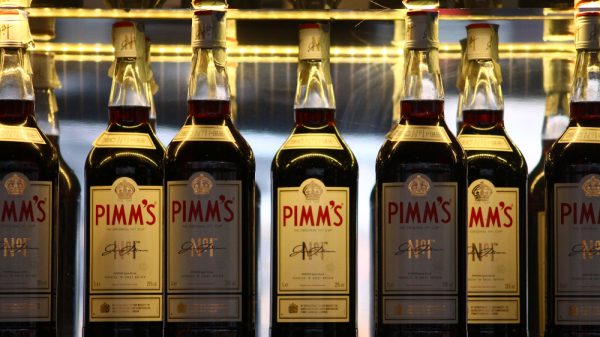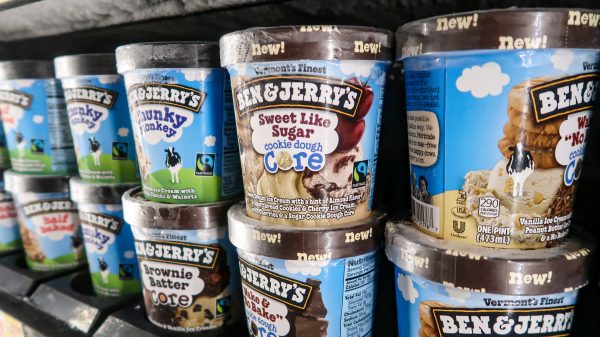Earlier this week, Mars revealed it was snapping up Pringles-maker Kellanova in the year’s biggest M&A activity.
It is one of many major manufacturers that have sought to acquire new brands in the past few months. We round up recent FMCG mergers, acquisitions and portfolio reshuffles that are reshaping the grocery sector landscape.

Earlier this week, confectionery giant Mars revealed it had reached an agreement to snap up Pringles maker Kellanova for more than $29bn (£22bn).
The deal would be the largest-ever acquisition for Mars, including its $23bn agreement Wrigley in 2008. It follows the FMCG giant purchasing upmarket chocolate retailer Hotel Chocolat last November, in a £534m deal.
It was first published that Mars was exploring buying Kellanova, whose portfolio also includes, Pop-Tarts, Rice Krispie Treats and Special K, earlier this month, with news of the potential acquisition sent Kellanova’s shares soaring 18%.
TD Cowen analyst Robert Moskow said the deal “could usher in another cycle of consolidation in the packaged foods space”.

Reckitt plans to offload its homecare and nutrition brands, in an aim to refocus on its ‘power brands’.
The company has revealed it plans to sell essential home brands such as Air Wick, Calgon and Cillit Bang – which posted a net revenue of £1.9bn in 2023 – by the end of 2025.
Reckitt will also find new owners for its nutritional arm, including infant formula brand Mead Johnson, Enfamil and Nutramigen, although no date has been allocated for this transaction.
Instead, it will prioritise its “high-growth and high-margin Powerbrands”, including Strepsils, Gaviscon, Nurofen, Lysol, Dettol, Finish, Vanish, Durex and Veet. With time, its new Powerbrands portfolio is expected to be updated with “important local hero brands” including Lemsip and Airbourne.
It comes amid a series of blows Reckitt has weathered in recent months, including a £7bn drop in shares from a US judge ruling the FMCG is to pay £47.1m ($60m) after a baby died from consuming its Enfamil Premature 24 infant formula, and millions of pounds in damage from a tornado which torn though its Mount Vernon warehouse.

On 19 July, Diageo agreed to sell Pampero rum to Italian spirits company Gruppo Montenegro in a move its president for Europe said will allow the drinks giant to “concentrate on our portfolio’s core areas of strength”.
Just weeks prior, the Guinness-owner also confirmed the sale of fruit-flavoured liqueur brand Safari to Portuguese beverage-alcohol company Casa Redondo.
The shake-up of its portfolio did not come as a surprise to analysts, after Diageo earlier this year hinted that it was in the early stages of exploring the sale of a series of non-core spirit brands, including yet-to-be-sold Pimms.
It comes after a turbulent few months for the FMCG giant, which issued a profit warning in November amid rumours that it was also seeking to sell it’s beer brands as profit hit a three-year low.
However Diageo’s wider business has also garnered attention from analysts in recent weeks, which have identified the drinks titan as a prime candidate for a takeover attempt.
Sign up here to get the latest grocery and food news each morning

Pernod Ricard has confirmed it will sell the bulk of its wine units to Australia’s Accolade Wines, as the alcohol giant aims to focus on its portfolio of spirit brands.
The London-listed company, whose wine portfolio includes Campo Viejo and Jacob’s Creek, will sell many of its wine brands from New Zealand, Australia and Spain, to redirect its resources to drive growth across it remaining brands.
However, Pernod Ricard added that it will continue to own champagne brands, as well as some wine from the US, France, Argentina and China.

Carlsberg has agreed to purchase Robinsons manufacturer Britvic in a £3.3bn deal that will see the two companies merge to to a single integrated beverage company in the UK, called Carlsberg Britvic.
The Danish brewer has also confirmed it will acquire its UK joint brewing venture with Marston’s for a total of £206m for its 40% stake. The successful acquisition follows Britvic declining two previous bids, including a £3.1bn proposal last month.
Carlsberg group CEO Jacob Aarup-Andersen said: “The proposed transaction is attractive for shareholders of Carlsberg, supporting our growth ambitions, being immediately earnings accretive and value-accretive in year three.
“We are excited about expanding our global partnership with PepsiCo and believe that the longer-term opportunities will be very beneficial for both companies.
“We are committed to accelerating commercial and supply chain investments in Britvic, and we are confident that Carlsberg Britvic will become the preferred multi-beverage supplier to customers in the UK with a comprehensive portfolio of market-leading brands.”

Last month UK winemaker Chapel Down revealed it was considering the sale of the company, as part of a strategic review into funding options for its growth plans.
The company said the decision has been fuelled by a quest to find long-term investment to fund new vineyards and a purpose-built winery to be operational by 2026.
The winemaker announced it is contemplating a range of options, including the sale of the business or funding from new or existing shareholders, with the board adding it was “on-track” to deliver double digit sales growth in 2024.
While potential buyers have not been made public, earlier this week, Australian firm Treasury Wine shut down speculation of interest in acquiring the English winemaker.

Earlier this year, Unilever revealed it planned to split its ice cream division from the rest of its portfolio in an attempt to become a “leaner and more accountable” business.
Yet weeks later, analysts claimed that Unilever was finding it difficult to offload its entire multi-billion pound ice cream division to a buyer due to the sheer size of the brands, such as Magnum, Ben & Jerry’s and Wall’s, valued at more than £15bn.
It is thought that one way the FMCG behemoth is expected to overcome this difficulty is by retaining a significant minority stake, yet industry experts still believe that buyers may have to pair up in order to bid on the brands.